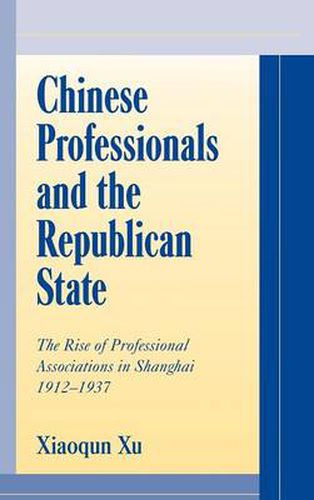Readings Newsletter
Become a Readings Member to make your shopping experience even easier.
Sign in or sign up for free!
You’re not far away from qualifying for FREE standard shipping within Australia
You’ve qualified for FREE standard shipping within Australia
The cart is loading…






Xiaoqun Xu makes a compelling and original contribution to the study of China’s modernization with this book on the rise of professional associations in Republican China in their birthplace of Shanghai, and of their political and socio-cultural milieu. This book is rich in detail about the key professional and political figures and organizations in Shanghai, filling an important gap in its social history. The professional associations were, as the author writes, ‘unambiguously urban and modern in their origins and functions …representing a new breed of educated Chinese’ and they pioneered a new type of relationship with the state. Xu addresses a central issue in China studies, the relationship between state and society, and proposes an alternative to the Western-derived concept of civil society. This book illuminates the complexity of modernization and nationalism in twentieth-century China, and provides a concrete case for comparative studies of professionalization and class formation across cultures.
$9.00 standard shipping within Australia
FREE standard shipping within Australia for orders over $100.00
Express & International shipping calculated at checkout
Xiaoqun Xu makes a compelling and original contribution to the study of China’s modernization with this book on the rise of professional associations in Republican China in their birthplace of Shanghai, and of their political and socio-cultural milieu. This book is rich in detail about the key professional and political figures and organizations in Shanghai, filling an important gap in its social history. The professional associations were, as the author writes, ‘unambiguously urban and modern in their origins and functions …representing a new breed of educated Chinese’ and they pioneered a new type of relationship with the state. Xu addresses a central issue in China studies, the relationship between state and society, and proposes an alternative to the Western-derived concept of civil society. This book illuminates the complexity of modernization and nationalism in twentieth-century China, and provides a concrete case for comparative studies of professionalization and class formation across cultures.